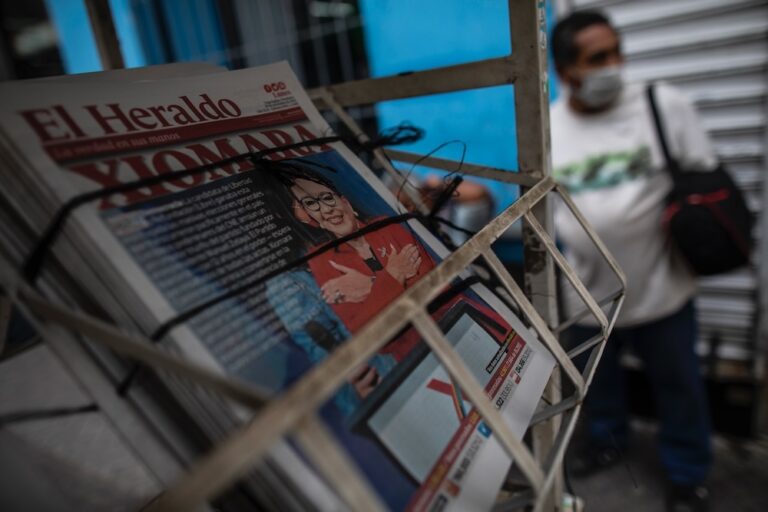(PROBIDAD/IFEX) – The Access to Public Information and Habeas Data bill was introduced in Congress in October 2004, with the support of the heads of the five political party caucuses. On several occasions since then, Congressional leaders have expressed their willingness to approve it. However, in the last few weeks, the legislative commission that introduced […]
(PROBIDAD/IFEX) – The Access to Public Information and Habeas Data bill was introduced in Congress in October 2004, with the support of the heads of the five political party caucuses. On several occasions since then, Congressional leaders have expressed their willingness to approve it.
However, in the last few weeks, the legislative commission that introduced the bill has extended debate, given the opposition of the Honduran College of Journalists (Colegio de Periodistas de Honduras, CPH), the Media Association (Asociación de Medios de Comunicación) and the Honduran Business Council (Consejo Hondureño de la Empresa Privada, COHEP).
Nevertheless, if the bill becomes law, it would uphold the democratic principle of publicising the State’s actions, protect the principle of public officials being accountable to the citizenry and protect personal data in the hands of public and/or private authorities.
Concerning the opposition which has recently arisen to the bill, the Special Rapporteur for Freedom of Expression of the Inter-American Commission on Human Rights has stated on various occasions, “any policy designed to obstruct access to information with respect to government activities poses the risk of promoting corruption within the institutions of the state, and thus weakening democracies.” This is why PROBIDAD has questioned the position of the CPH, the Media Association and COHEP for giving higher priority to sectoral than national interests.
PROBIDAD, guided by Article 13 (b) of the United Nations Convention Against Corruption, which states that every state must guarantee effective public access to information, therefore sent a letter on 19 August 2005 to the President of the Honduran Congress, setting forth clearly the position that failure to approve this bill would constitute the denial of one of the Honduran people’s fundamental rights, the right to information (see Spanish text of this letter at http://www.probidad.org/alertas/casoPorfirio.doc).
Thus, Probidad joins many other Honduran institutions which are currently asking that this bill be approved, since public information is not the property of a government official, but rather belongs to the entire society (for further information, see the 19 August statement by the Committee for Free Expression [Comité por la Libre Expresión, C-Libre] http://www.probidad.org/alertas/pronunciamentoC_Libre.pdf):
This alert was prepared by PROBIDAD with information provided by C-Libre


